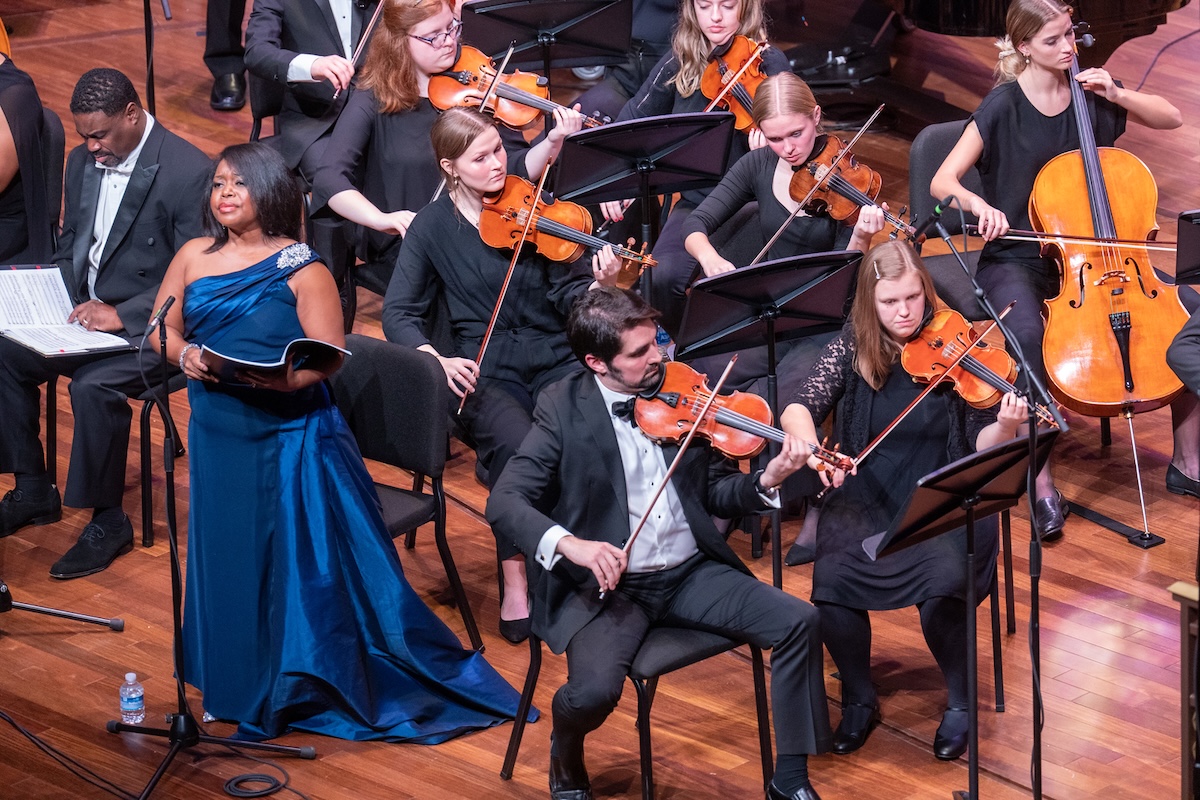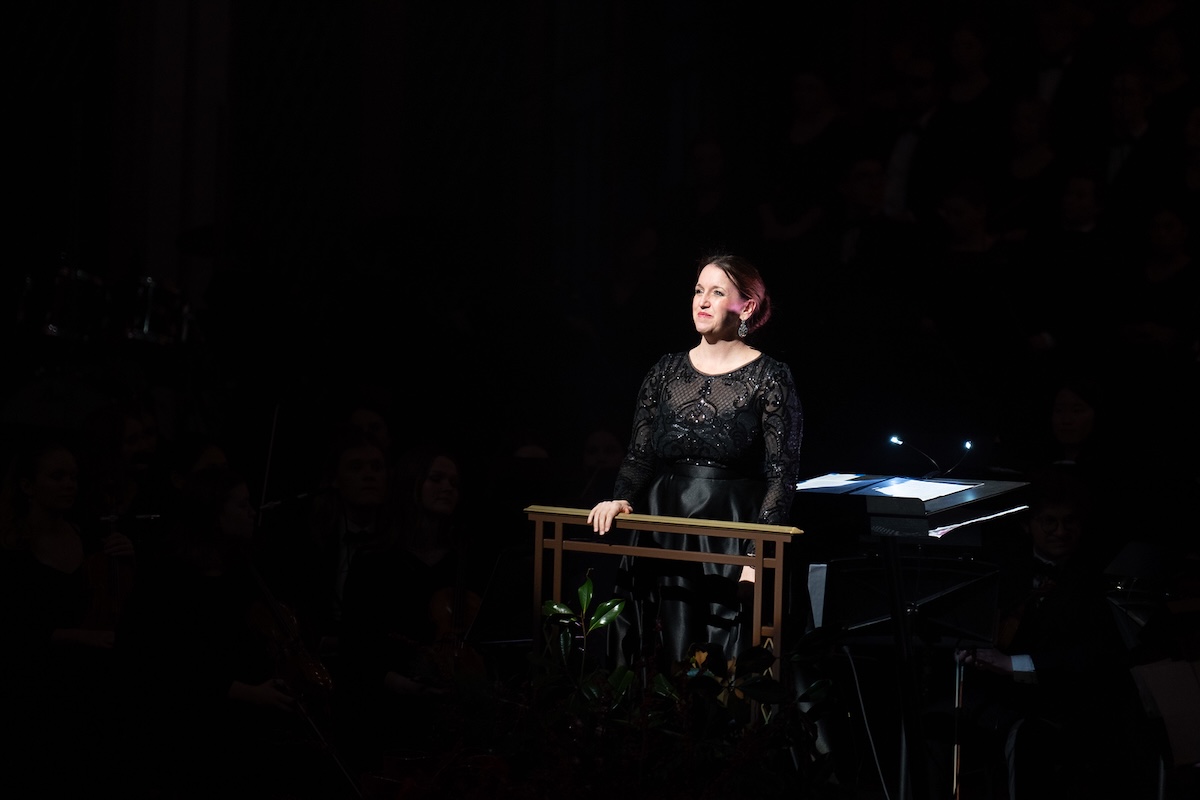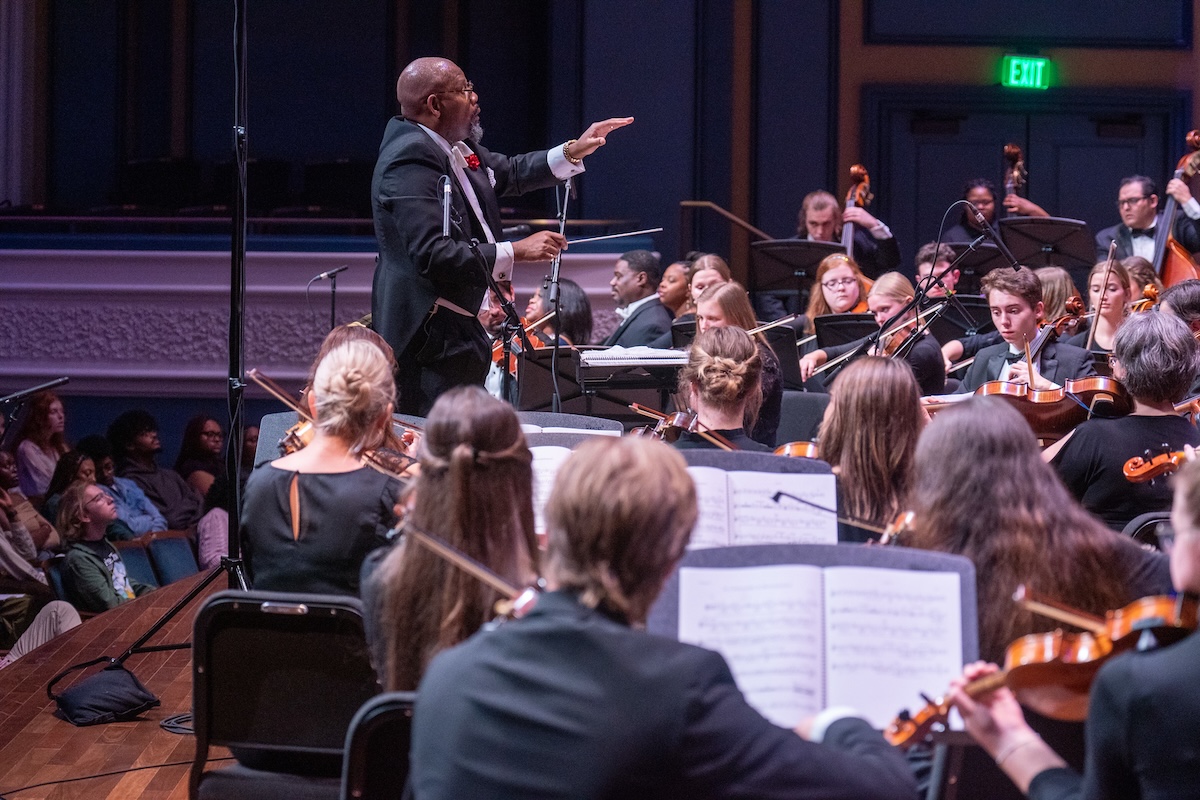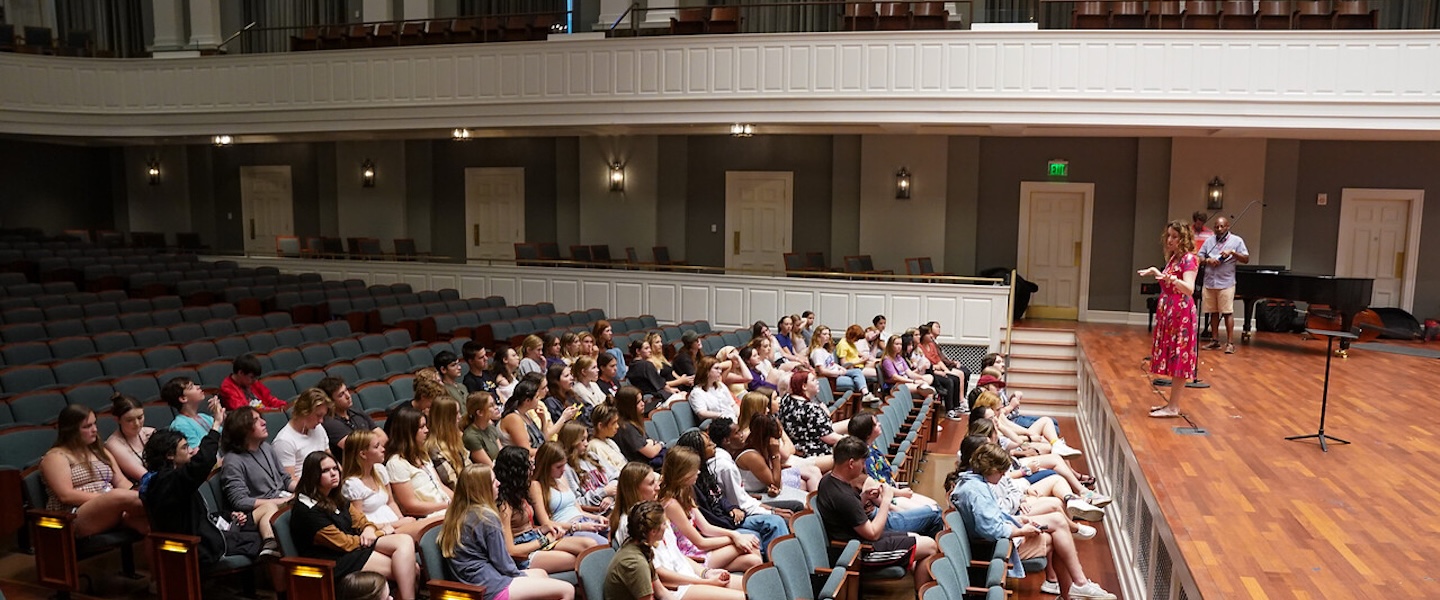When Belmont launches its second cohort of the reimagined Master of Music in Music Education program this summer, it will represent a significant evolution in how working music teachers can advance their education. The redesigned, 13-month program, developed by Drs. Lesley Mann and Julia Reynolds, combines intensive summer sessions with asynchronous online learning, creating a unique hybrid model that allows teachers to deepen their practice without leaving their classrooms.
 The program's fresh format reflects how dramatically music education has transformed in recent decades. While traditional master's programs often require teachers to either leave their jobs or spend multiple summers away from home, Belmont's approach acknowledges the realities of modern educators' lives while maintaining the benefits of in-person community learning.
The program's fresh format reflects how dramatically music education has transformed in recent decades. While traditional master's programs often require teachers to either leave their jobs or spend multiple summers away from home, Belmont's approach acknowledges the realities of modern educators' lives while maintaining the benefits of in-person community learning.
“When I talk to students about this format, their eyes light up,” explained Mann, who is starting her 11th year as Belmont's coordinator of music education. “Coming in person allows them to form community and relationships and think deeply about their teaching, while the online portion meets their practical needs as working professionals.”
The reimagined curriculum also responds to how music education itself has evolved.
“When we look at what practicing teachers are doing and how the profession has changed in the last 10 to 20 years regarding technology, content and programming, we needed a program that could support that,” said Reynolds.
Further Insight into the Program:
To explore how the program brings together practical teaching enhancement with innovative course delivery, current students Angela Winter and Gina Mercurio shared their experiences:
Initial Impressions and Community Building
 “It was the format for a master's program I had hoped for, so I was super excited to be a part of it. Thus far, I'd say it has exceeded my expectations,” Mercurio shared. “The courses have all been very well thought through. I have not once felt like the online content was busy work or that the in-person content was too hard. There has been a great balance of challenging and engaging work that is also super beneficial and thought provoking.”
“It was the format for a master's program I had hoped for, so I was super excited to be a part of it. Thus far, I'd say it has exceeded my expectations,” Mercurio shared. “The courses have all been very well thought through. I have not once felt like the online content was busy work or that the in-person content was too hard. There has been a great balance of challenging and engaging work that is also super beneficial and thought provoking.”
Additionally, Mercurio said the sense of community and relationships developed with her cohort over the summer led seamlessly into the online classes, which she had not anticipated.
“I love being able to reach out to my fellow students and even professors to ask for advice or guidance,” she beamed. “Most online programs don't offer any in-person classes, and I think they are really missing out on a wonderful opportunity there.”
The Summer Intensive Experience
While the program's expedited format is demanding, Mercurio appreciates how the faculty understand the challenges of balancing graduate studies with teaching responsibilities. “The flexibility the professors have provided has helped a ton. The 'deadlines' have been a little lenient which has allowed me to complete them when it makes the most sense in relation to my teaching classes,” she reflected. “It's hard work and requires a lot of time management, but I think those are good skills to adjust during this time and provide opportunities for some teaching moments in our personal lives as well.”
Winter continued to emphasize how the relationships endure throughout the remainder of the program, even once transitioning into online classes during the year. “You're on campus with your classmates learning extremely important information VERY quickly every day,” she said. “You quickly form a bond that lasts throughout the remainer of the program, even though you aren't together in person.”
Direct Impact on Teaching Practice
 The program's practical focus has already yielded results for its students. Winter describes how Dr. Mann's field-based teaching course transformed her approach. “Are you a song teacher or a music teacher? This question made me begin to critically think about everything I did during rehearsal. How is the repertoire that I picked supporting the curriculum goals I want them to learn this year?” she explained. “This mindset switch has helped me restructure my teaching in order to better reach long term curricular goals.”
The program's practical focus has already yielded results for its students. Winter describes how Dr. Mann's field-based teaching course transformed her approach. “Are you a song teacher or a music teacher? This question made me begin to critically think about everything I did during rehearsal. How is the repertoire that I picked supporting the curriculum goals I want them to learn this year?” she explained. “This mindset switch has helped me restructure my teaching in order to better reach long term curricular goals.”
Winter also highlighted the immediate impact of her conducting instruction. “My conducting class with Dr. Jeffery Ames was also extremely helpful. His approach to score study and technical aspects of conducting have made a HUGE difference in my school year already!”
Mercurio has also found immediate applications.
“From the summer course with Alexis Derryberry, ‘Special Topics: Piano/World Drumming/Guitar,’ we learned a lot of new content that I was able to immediately put into practice in my Music and Culture class.”
She added that the program “encouraged me to think more proactively as an educator and to be more creative in the ways I teach, which has been a game changer this second quarter.”
A Distinctive Graduate Experience
“Everything I have worked on thus far has helped refine my skills and encouraged me to think more critically about what I am doing in the classroom,” Mercurio reflected.
She particularly values the faculty's dedication. “Because they also have the passion for the future of music education, you can tell they have worked hard to ensure that the way and the content they teach is important and will be beneficial in our classrooms. I know that must have been a challenge for each of them, and we are all so appreciative.”
For Mercurio, who completed her undergraduate degree at Belmont, the difference is clear. “While my undergrad experience taught me what teaching looked like, this graduate experience is centered around my actual classroom and my real students,” she remarked. “I am able to see in real time how the content and skills I am learning are affecting my teaching and my students, which is truly beautiful.”
“I've really enjoyed that the class curriculums are geared towards teaching us HOW to teach things, rather than just giving us new knowledge,” added Winter. “The faculty reignited my commitment to community building and leadership within my classroom. Their demonstration of how to be experts in the classroom while also allowing student feedback and communication has been incredible!”
Supporting the next generation of music educators is a priority at Belmont. The program includes a tuition discount in line with the University's commitment to advancing teacher education.
Applications for the summer 2025 cohort are currently open through April. The 13-month program begins with an intensive four-week summer session, followed by online coursework during the academic year, and concludes with a final summer session.
Teachers interested in advancing their practice while maintaining their classroom positions can learn more about the program through Belmont's School of Music.
Interested?
Learn more about Belmont's Reimagined Program

